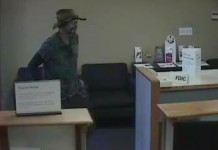Considering Cheating On Your Taxes Or Filing A False Tax Return? Think Again

While it’s clear that the IRS is struggling to keep up with audits due to budget cuts, they are sending a strong message that taking advantage of their lack of diligence is certainly not a green flag to try to cheat them. Despite the impact of “significant budget cuts,” the IRS said it has a “comprehensive and aggressive identity theft strategy that focuses on preventing refund fraud, investigating these crimes and assisting taxpayers victimized by it.”
As one West Jordan woman recently found out, filing a fake tax return can lead to very serious consequences. Jacquelin Boyd, 37, pleaded guilty to making a false claim to the IRS in U.S. District Court last month. Boyd apparently obtained the names and Social Security numbers of people who had died in California through a website. She then submitted falsified tax returns using their names and false records of wages by employers with Utah addresses. She was originally indicted on a total of 21 counts, including wire fraud, mail fraud, filing false claims and aggravated identity theft. As part of a plea deal, she has agreed to pay restitution of over $32,000 to the IRS and is expected to serve just over a year in federal prison.
While it is estimated that the IRS paid out nearly $3.6 billion in fraudulent tax returns in 2013 alone, for the IRS that is good news. That number is down from the $5.2 billion they paid out in fraudulent claims just the year before. They can credit some of that to the fact that the IRS has caught 12.6 million suspicious returns, amounting to $40 billion in refunds just over the last two years.
The amount of returns the IRS system let slip through the cracks is still shocking. In all, the agency failed to prevent 1.1 million potentially fraudulent tax returns from being screened. That includes 5,500 fraudulent returns, for a refund of nearly $27 million , that includes 700 tax returns paid out to the same address in Bulgaria for more than $490,000.
Your chances of getting audited vary greatly, based on your income. The more you make, the more likely you are to get a letter from the IRS. Only 0.9 percent of people making less than $200,000 were audited last year. That’s the lowest rate since the IRS began publishing the statistic in 2006. By contrast, 10.9 percent of people making $1 million or more were audited. That’s the lowest rate since 2010. Only 0.6 percent of business returns were audited, but the rate varied greatly depending on the size of the business. About 16 percent of corporations with more than $10 million in assets were audited.
I recently talked to Kirk Leetzow and his son Landon from Kirk Leetzow and Associtates, a Gephardt Approved Tax firm in both Murray and Logan. He said his best advice for those that are considering cheating on their taxes is to just not do it. Regardless of the risk of an audit or not, it is simply not worth it. He indicated that if you cheat on your taxes and get caught, the penalty is 100% plus fees and up to 5 years in prison.
While many of those who cheat usually do so in the form of business losses or incorrect information on dependents, he indicates using a professional tax service rather than the free online services to make sure that your business losses are legitimate is always the safest way to ensure less trouble. Being audited is scary and when you do your taxes by yourself, then get a letter from the IRS, you’re going to need a professional anyway. It’s just best with more complex taxes not to trust a program simply because it’s free.
If you’re facing an audit, and your concerned about what to do next you can either contact Kirk Leetzow and Associates or you can find more information on the IRS website IRS.gov.






